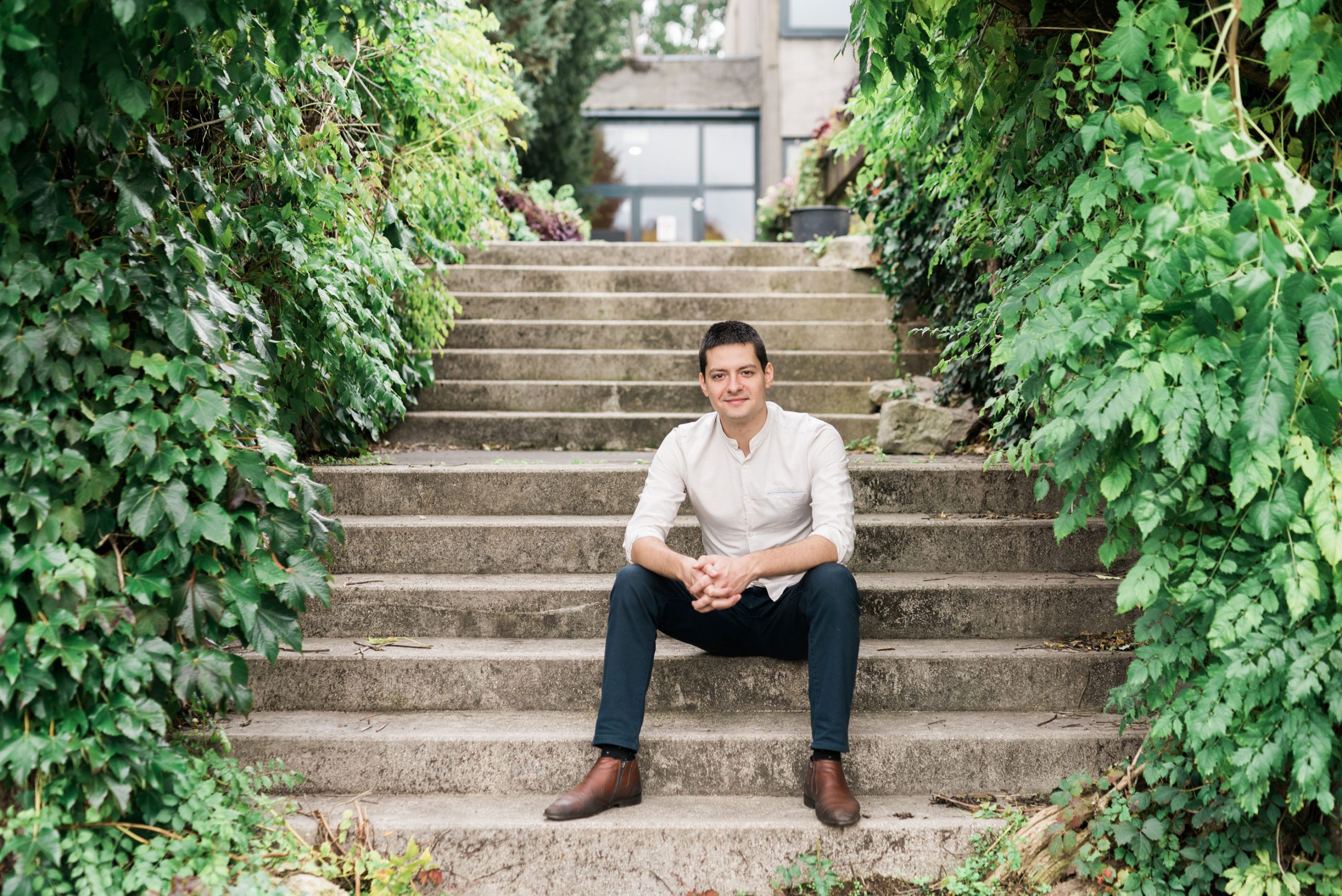Ádám Tabajdi has gained extensive international experience as the intern of the Notre Dame de Paris and the resident organist of the Sapporo Concert Hall Kitara; thus, he may be regarded as one of the outstanding young Hungarian organists of our days. In 2023 he won Third Prize of the Longwood Gardens International Organ Competition ; and in 2021 he won the First Prize and the Audience Prize of the 13th Toulouse International Organ Competition.
In his musical thinking, analytic approach, technical expertise, and knowledge of the instrument all serve musical connections. In his concepts for programmes, he continually strives to find new ways to express the spirit of the works, which can happen by studying a given style deeply or by finding the common denominator between seemingly utterly different pieces. At his concerts, he attempts to enhance direct connection between works and audience with personal introductions. The piano has had a distinguished role in his life since the beginning of his studies, and it has been a constant inspiration in creating his culture of touch. His interest is shaped by folk music of different cultures and by improvisation, which he regards as a stable source of inspiration for his art. In his repertoire, besides Bach always being at its centre, Liszt, Franck, and the music of the 20th century, with Messiaen’s, Florentz’s, and Ligeti’s works within, fulfill important roles. He is a committed performer of contemporary music, and he also feels closely connected to the works of old masters such as Sweelinck, Weckmann, or Couperin.

Audiences may have heard him play in the largest cathedrals of Hungary, in the Müpa, and the Matthias Church in the Buda Castle; in France, he was a permanent artist of the music series at Saint-Séverin’s and at the Royal Chapel of Versailles; he has played, among others, in the Notre Dame de Paris and the Chartres Cathedral, and in Japan, in the Sumida Tryphony Hall, Tokyo, the Osaka Symphony Hall, and the Kyoto Concert Hall.
In 2020, his recording of transcriptions of symphonic pieces and his own arrangement of Béla Bartók’s Dance Suite was published by the Kitara Concert Hall.
Currently, he is a doctoral student at the Liszt Academy of Music, Budapest. In his dissertation, he is studying the problems considering the rhythmic interpretations of the French composer, Jean-Louis Florentz’s organ works with regard to the Western musical tradition and African music.
He started learning to play the piano when he was 5 years old; later, at the age of 14, he also started playing the organ under the influence of Dezső Karasszon PhD, whom he has regarded as an influential musician ever since. He studied the piano with Béla Grünwald and the organ with Dániel Sárosi at the Kodály Secondary School of Music, Debrecen. Later, he studied with László Fassang, János Pálúr, and István Ruppert at the Liszt Academy, Budapest, and with Olivier Latry and Michel Bouvard at the Paris Conservatory. His taste in organ esthetics was shaped by the organology training lead by Balázs Szabó PhD, and by the study tours abroad organised by the Liszt Academy of Music, Budapest, during which he had the opportunity to get closely acquainted with important historic organs. He studied improvisation with László Fassang, Thierry Escaich, and János Pálúr; composition with Olivier Trachier and Gergely Barta; the harpsichord with Pierre Casez, Thierry Maeder, and Miklós Spányi; and the piano with Philippe Tamborini and Ilona Prunyi. Mastercourses lead by Christoph Bossert, Wolfgang Zerer, Hans-Ola Ericsson, and Ton Koopman had a definitive influence on him. During his studies in Paris, he was elected to be the first intern organist at the Notre Dame de Paris, as a consequence of which he actively participated in the musical life of the cathedral for a year. Following his studies in Budapest and Paris, he was the resident organist at the Sapporo Concert Hall Kitara for a year.
For his outstanding professional performance, he was awarded the scholarships of the Fondation de France and the Amin de Tarazzi Foundation in France, and the Annie Fischer Scholarschip of Performing Arts in Hungary. In 2022 he received the most prestigious prize in Hungary awarded for young musicians, the Junior Prima Prize.
